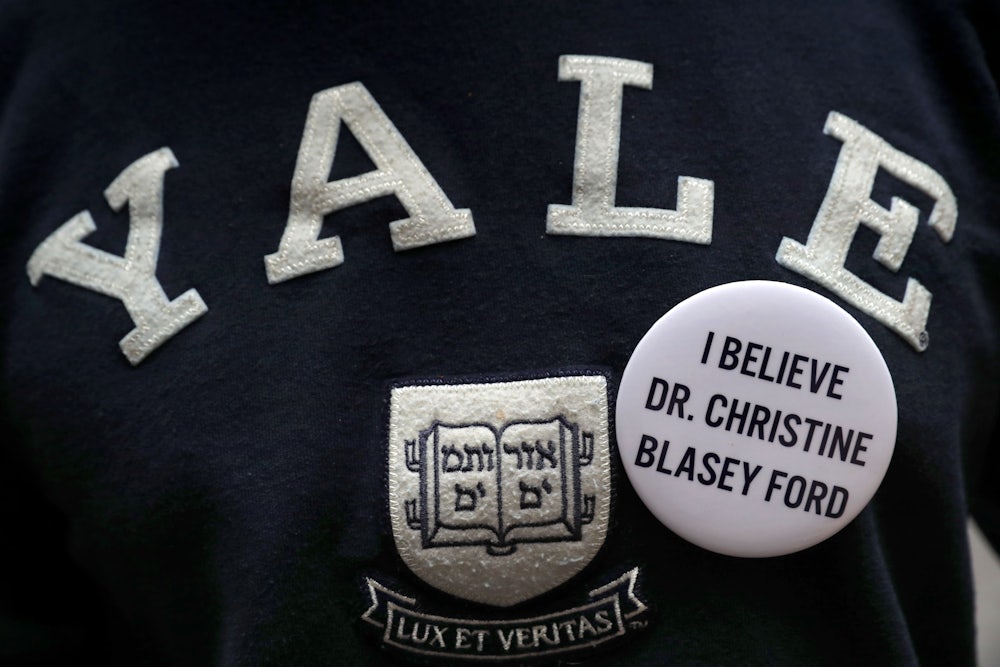During the course of his tempestuous Supreme Court nomination process, Brett Kavanaugh has called attention to various elite institutions that have either nurtured him or given their support to him: the Jesuit-run Georgetown Preparatory School, Yale University, and the American Bar Association. Now, leading figures from the Jesuits, Yale Law School, and the ABA are all urging that Kavanaugh’s nomination be opposed or slowed down.
On Thursday, America, the journal of the Jesuits in America, published an editorial taking back their previous endorsement of Kavanaugh’s nomination. “While we previously endorsed the nomination of Judge Kavanaugh on the basis of his legal credentials and his reputation as a committed textualist, it is now clear that the nomination should be withdrawn,” America’s editors wrote.
The same day, Robert Carlson, president of the ABA wrote a letter to the Senate Judiciary Committee arguing a vote on Kavanaugh should be delayed until the FBI has investigated allegations against him of sexual assault. “The basic principles that underscore the Senate’s constitutional duty of advice and consent on federal judicial nominees require nothing less than a careful examination of the accusations and facts by the FBI,” the letter argued.
On Friday, Dean Heather Gerken of the Yale Law School echoed the ABA’s position:
Dean Gerken Joins the ABA in Calling for Further Investigation. pic.twitter.com/SYAsVHwsi7
— Yale Law School (@YaleLawSch) September 28, 2018
The moves of the Jesuits, the ABA, and Yale Law School show that among elite institutions, the Kavanaugh nomination is creating a real dilemma. These institutions would normally be eager to align themselves with a powerful figure who has a good chance of becoming a Supreme Court Justice. None of these institutions have taken the position that Kavanaugh is definitely guilty. But they have expressed concern that confirming a candidate who has credible, uninvestigated allegations of sexual assault might undermine the legitimacy of the courts.
